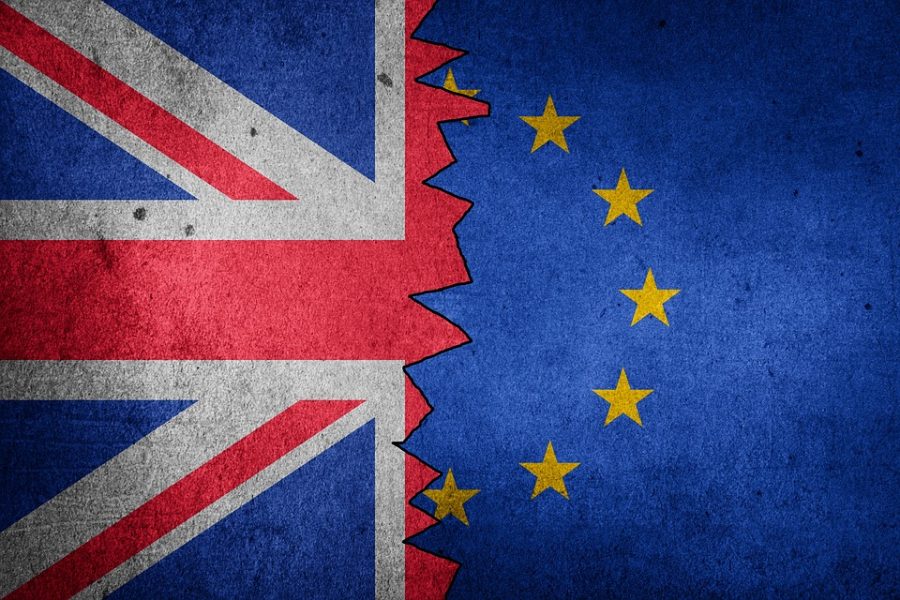Brexit: Explained
October 11, 2019
On September 9th, 2019, British Prime Minister Boris Johnson “prorogued” Parliament. Now to the American, the only words we would understand are “on September 9th, 2019.” But, this “prorogue” or suspension of Parliament has a lot of the British Parliamentarians up in arms against Prime Minister Boris Johnson. This is all because of a little thing called “Brexit”.
What in the world is Brexit?
Well mate, Brexit, which is a conjunction of “Britain” and “exit,” is the United Kingdom’s attempt to leave the European Union. Way back in 2016, the UK held a referendum as to leave the EU or not. Many people in Britain felt that the EU had no right to control the laws and regulations of the sovereign nations of the UK. Following the vote, they were authorized to leave March 29th, 2019. As you probably know, it was delayed twice to the current date of October 31st, 2019, fewer that three weeks away.
What is happening now?
News outlets are reporting that British Prime Minister Boris Johnson has prorogued parliament. This means that Boris Johnson can suspend parliament for a period of time. To understand why this is even allowed, we need to understand that Parliament is separated into sessions, like our Congress. A session usually lasts around a year. In the UK sessions generally start and end around springtime. However, Boris Johnson is utilizing prorogation as a tool to prevent the UK and the EU from negotiating a deal. This is called a “No-Deal Brexit” where the UK leaves the EU without a new agreement in place for trade and immigration (among other issues). This could seriously harm the UK’s economy and cause bottlenecks in ports, roads, supply routes, and after a certain amount of time, imported food and drugs will run short. This would set the UK’s economy back significantly, hurt businesses across Europe, and hurt the people of the UK.
Another key issue is the backstop in Ireland. Relations between Northern Ireland and Ireland have been rocky for decades. Some people in Northern Ireland wanted Northern Ireland to leave the UK and re-join Ireland. The fighting began in 1969 with North Irish nationalists who wanted to join Ireland’s southern counties. Fighting didn’t officially cease with the Good Friday Agreement in 1998. Since the EU had open borders among member states, there weren’t any issues with people crossing borders. But with the possibility of checkpoints and the restoration of a hard Irish border, it could lead to further violence and damage to the Irish-English relationship.
Ok. Why should I care?
The day after the Brexit referendum, the Dow Jones dropped 610.32 points and the Euro’s worth dropped 2% compared to the US dollar. This strengthened the US dollar which scares away foreign investors. This domino effect caused the gold prices to shoot up 6%. British investments in the US impact 2 million US/UK jobs. If those went away, those 2 million jobs could be lost or stuck in an indefinite state of affairs. Imagine the damage it would wreak across the world economy if the UK successfully leaves the EU.
What is going on now?
Currently, we are in a limbo state where the UK needs to strike a deal with the EU to avoid all of these negative effects. However, Boris Johnson’s current plans seem to indicate that we are nowhere close to a deal where both parties can leave with minimal losses. Johnson’s plan for a hard border with Ireland was leaked and Business Insider reports that the Irish deemed it a “non-starter.” Johnson is opposing Parliament by stating that the UK would leave the EU with or without a deal even though Parliament passing laws demanding Boris to extend the deadline for the third time.
For the time being, the world is in a “wait-and-see” situation. If Johnson somehow manages to strike a deal that appeases both Parliament and the EU, we could be golden. But the most likely option is that the UK leaves without a deal, and chaos ensues. Deal or no deal, Big Ben’s bells will continue to strike.
























